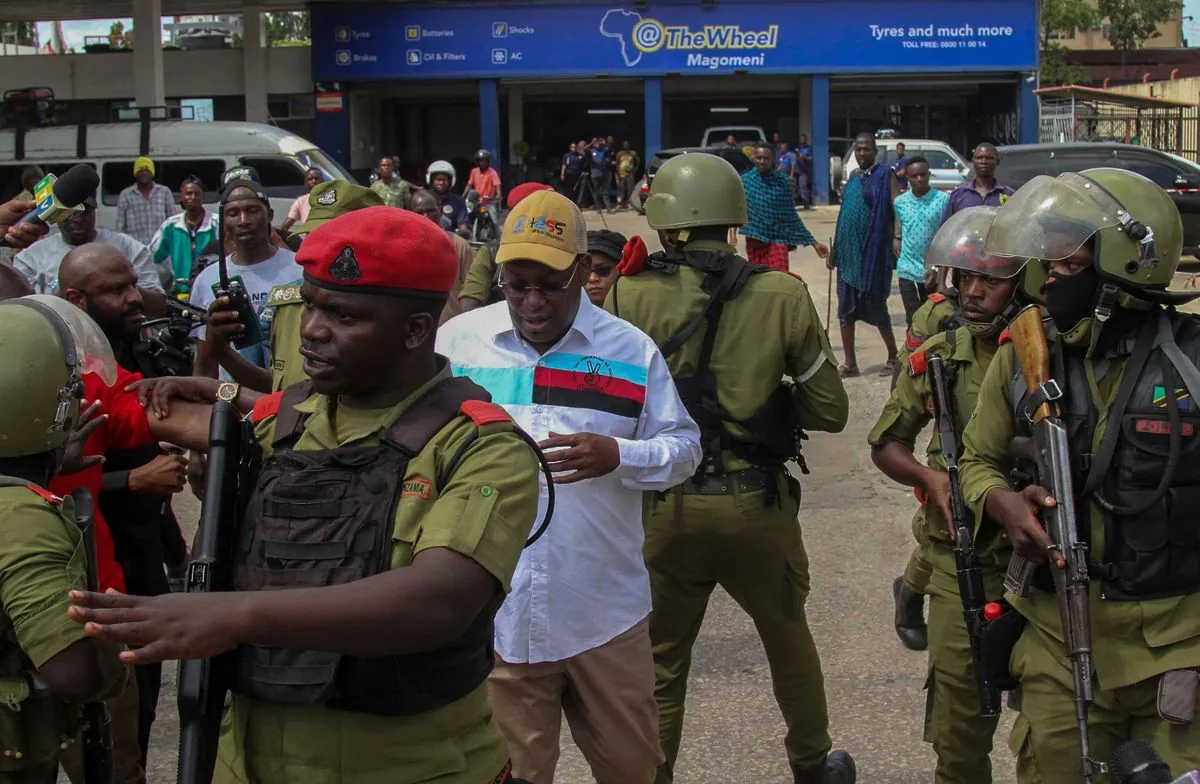Tanzania's Opposition Leaders Detained Amid Protest Controversy
Tanzanian authorities arrested top opposition figures as tensions rise over alleged crackdown on dissent. The move comes amidst growing concerns about political freedoms in the East African nation.

In a significant development in Tanzania's political landscape, law enforcement officials have apprehended key figures from the country's primary opposition party, CHADEMA. This action occurred on September 23, 2024, as the party attempted to organize demonstrations despite an official ban on such gatherings.
Freeman Mbowe, CHADEMA's chairman, and his deputy Tundu Lissu, along with six other party officials, were taken into custody at various locations. The party asserts that their planned protests were in accordance with constitutional rights and that proper notification had been given to the police as required by law.
This incident is part of a broader context of political tension in Tanzania, a nation of over 60 million people with a rich tapestry of more than 120 ethnic groups. The country, which gained independence from British rule in 1961, has been grappling with issues of political freedom and dissent.
Last month, hundreds of CHADEMA supporters were arrested, and tragically, party secretariat member Ali Kibao was abducted and later found deceased, bearing signs of physical abuse. This event prompted Amnesty International to call for an immediate halt to what they termed "arbitrary detentions of political opposition" in the country.
"There must be an immediate stop to arbitrary detentions of political opposition in Tanzania."
Tanzania's political landscape has been evolving since the passing of President John Magufuli in 2021. His successor, President Samia Suluhu Hassan, initially implemented reforms, including lifting a ban on political rallies. However, recent events have raised questions about the trajectory of these changes.
The country's history of political stability, relative to some of its neighbors, has been a point of pride. However, challenges persist, including issues of corruption and press freedom. Tanzania's multi-party system, established in 1992 when CHADEMA was founded, has been dominated by the CCM party since independence.
As Tanzania prepares for its general election in 2025, these recent developments have sparked concerns about the state of democracy in the nation. The country, known for its natural wonders like Mount Kilimanjaro and the Serengeti National Park, is now facing scrutiny over its commitment to political freedoms.
Tanzania's economy, heavily reliant on agriculture which employs about 65% of the workforce, has been making strides in various sectors. The country has been working on improving its infrastructure, including ports and railways, and has significant mineral resources such as gold and diamonds. However, political stability is crucial for continued economic progress and the attraction of foreign investment.
The international community is closely watching these developments, particularly given Tanzania's strategic position in the East African Community (EAC) economic bloc. The country's efforts to balance economic development with political reform will be critical as it moves forward.
As this situation unfolds, it serves as a reminder of the ongoing challenges faced by many African nations in their journey towards full democratic participation and the protection of civil liberties.


































